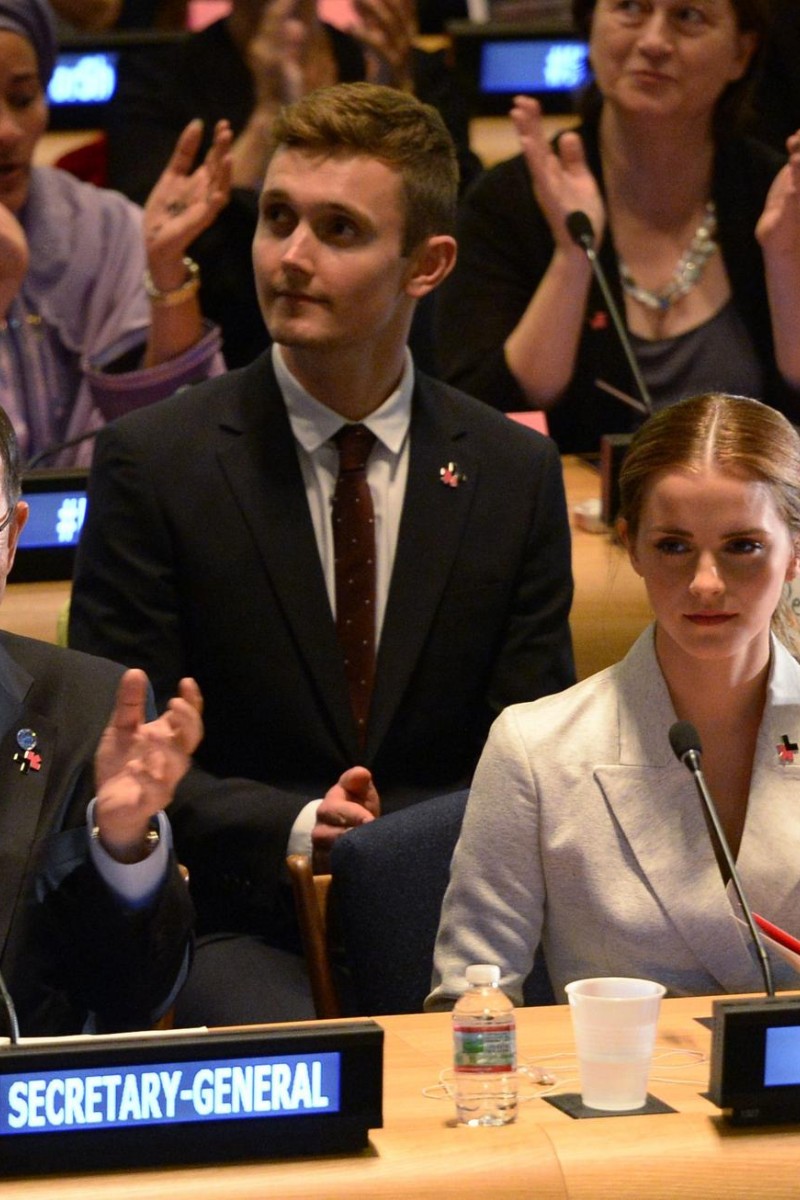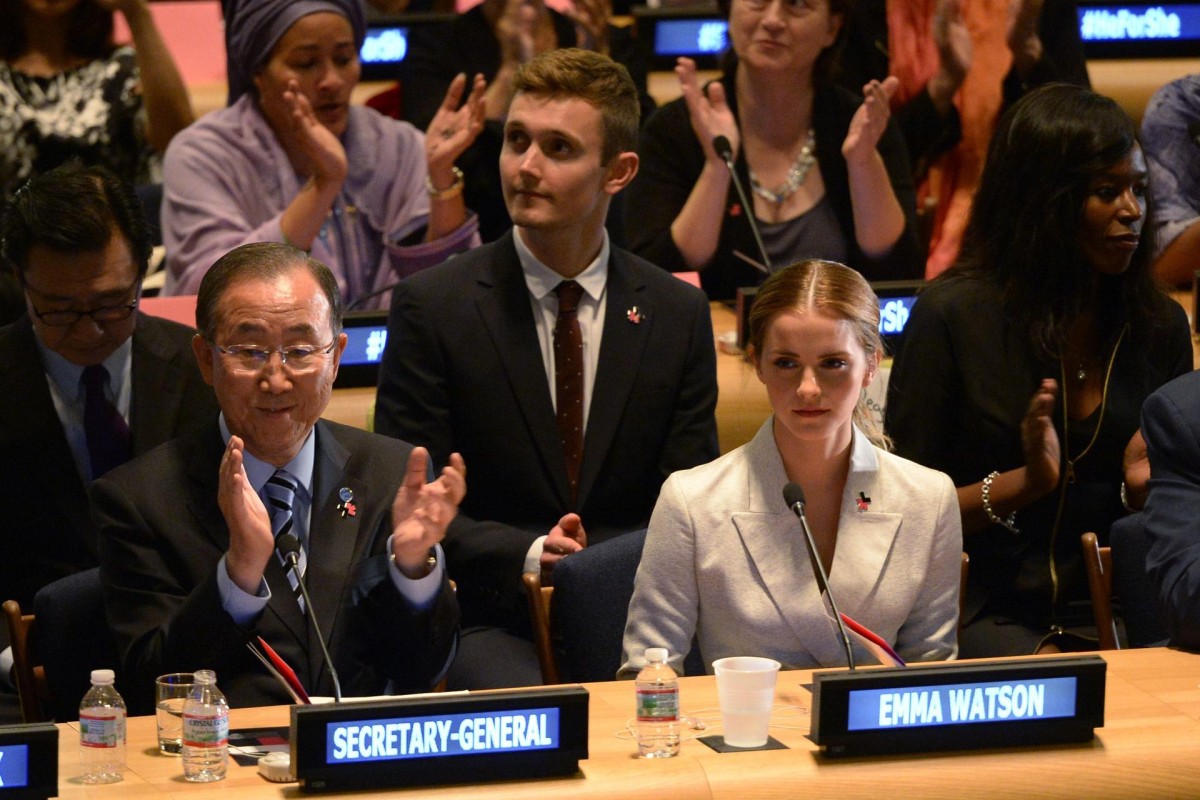
Harry Potter star Emma Watson puts gender equality in the spotlight
 UN Women Goodwill Ambassador Emma Watson (right) with UN Secretary General Ban Ki-moon
UN Women Goodwill Ambassador Emma Watson (right) with UN Secretary General Ban Ki-moonMinutes after Harry Potter star Emma Watson addressed the United Nations, my Facebook newsfeed was filled with shares and comments featuring the video.
Granted, I go to a women's college where our campus is alive with discussions of what it means to be a woman in today's society, but if you haven't seen her video yet, watch it.
In line with the UN's new movement for gender equality HeForShe, Watson appealed to men to play a bigger role in advocating this important issue.
The issue of gender equality has been an important topic in the US. American techie/author Sheryl Sandberg's book, Lean In: Women Work and the Will to Lead, created a stir with her argument that women can have it both - a successful career and a family. In the US, there are numerous initiatives for women to become involved with the rapidly growing technology, banking and finance industries.
Yet in Hong Kong, we hardly ever hear about gender equality, be it in the media or daily conversations, even with statistics pointing to a huge problem. For every HK$100 a man earns, women earn on average HK$75.
In 2011, only 11 of the Legislative Council's 60 members were women (this number has not changed since the newest round of elections in 2012). To date, the judiciary is heavily male-dominated: all 22 judges of the Court of Final Appeal, for example, are men. True, the Hong Kong government seems to have a healthier ratio, but the blatant absence of females in public posts is worrying.
I'm not pushing for everyone to become a feminist (I myself find it hard to determine where I stand), but I do urge people to develop a greater understanding of the issue and acknowledge that such a problem exists.
We take for granted that executive positions in the workplace and leadership roles in school communities have "historically" been filled by men. We don't question when a news report featuring a top organisation shows seven men and maybe one woman in the accompanying photo.
We need to be aware of and react to these frequent occurrences in a way that generates conversations and pushes for change. To quote Watson's speech, "If not me, who? If not now, when?"
As we look to the future of Hong Kong and its policy reforms, let us remember the gender equality problem has yet to be solved.
